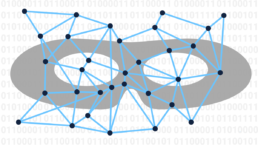Why Does My Digital Privacy Matter?

Share
Why Does My Digital Privacy Matter?
By Jim Crawford
With a name like Jim, it’s easy to end up with dozens of nicknames over the years. One of the quirkiest nicknames I’ve earned is “Tinfoil Hat Jim.” The name implying my propensity for sharing (too passionately, sometimes) about the underrepresented problems of the world. Many may be addressed in future blogs. However, one in particular, is incredibly important to me – your digital data and privacy.
WAIT DON’T LEAVE!
Yes, data and privacy. Please stick with me, as I try to make a case for why this matters. In honor of my family and friends, I wanted to list some of the most common responses I hear when a discussion about digital privacy comes up:
1. “I don’t care if they see what I’m doing. I don’t have anything to hide.”
Ahh, this one. You essentially denounce yourself as so meaningless, who would even bother? It works in theory, but unfortunately your data is what makes everyone else’s data so valuable – and vice versa. In the business of selling info, large sets of user data are required to glean habits and trends of different demographics.
This information is only valuable in large sets to build patterns with machine learning and algorithms. The data gatherers are hoping you and 5 million other people won’t care enough to secure your data – that’s the most valuable result for them. In the words of Plato, “To be silent, is to consent.”
TL;DR: It’s precisely because enough people just don’t care, that everyone else’s data is so valuable and it becomes easier to discern your personal preferences and opinions.
2. “Oh well, they already have all my info anyway.”
It’s true that consumer data protection has largely been ignored and violated for decades now. And it’s true some of your old info is probably in the hands of parties that should not have it. While a lot of your past history may be out there for someone to use or sell, why would that be a reason to continue providing those parties with more current and personal data about you? Think about your oldest email addresses, credit cards, and passwords. The data most likely to be compromised is probably already irrelevant to you, expired, or unused. But it’s not a logical reason to continue leaving yourself vulnerable to privacy violations.
TL;DR: If your sink was leaky, would you neglect to fix it because some of the water already leaked out?
3. “Well, I’m broke anyway, so the joke is on them.”
While Aunt Margery probably got the whole family paranoid after watching a broadcast special about “the foreigners” stealing your credit card info, let’s not go make a Facebook post about it…yet. Your primary concern is not really that someone will steal your money. This is where some of the strongest data security regulations already exist, thankfully. The concern is that data collectors will be able to build a profile on you and influence your habits and belief systems.
TL;DR: The big players aren’t after your money, directly. They are after your habits, patterns, and beliefs.
In general, I think the greatest mistake we make as a population is assuming our surface data is all that’s being collected. In reality, governments and corporations are tracking thousands of data points on each one of us – financial, political, commercial, social. How long we hover on text and images, which devices we are connecting with, where we are connecting from, what themes develop from our search history.
Want to take the first step in protecting your personal data? See some of my simplest recommendations below.
1. Make Mozilla Firefox or Apple Safari your default web browser.
Website cookies and trackers normally follow you around the web, track your actions, and report the data back to an organization. Firefox and Safari are making the most progressive attempts to prevent this by having each tab represent its own internet session. This way trackers cannot exit their own tab to track your other web activity.
2. Change your default search engine to DuckDuckGo.
Yes, DuckDuckGo. It sounds funny, but it is the antithesis to Google. Many search engines are the biggest offenders of privacy. Google began tracking and storing user data under the guise of providing more relevant ads. This has quickly devolved into complex personality profiles built “anonymously” and sold to the highest bidders, who want specific demographics to receive their message. The DuckDuckGo search engine does not operate on this revenue stream and doesn’t collect personalized data to profile and store.
It’s important to recognize that the more someone knows about you, the easier it is to understand you, including your wants, needs, and beliefs. At its least sinister, this means targeted advertising and location tracking – getting you to direct your money toward them. However, utilized in more sinister ways, this data can be used for voter suppression, political manipulation, social unrest, and even global disruption.
Jim Crawford formerly worked with CoPeace in business communications. As a forward-thinking holding company, CoPeace is building a portfolio of carefully selected for-profit companies with measurable social and environmental impact. To learn more about impact investing, check out CoPeace’s Intro to Impact Investing.
Why This, Why Us, Why Now

Why This | And Now for Something Completely Different
Business as we know it has not been working. Inequality continues to grow. Many people do not have access to opportunities or tools to improve their current economic situation. As of 2016, the average net worth of a Black family was about 10 times less than the net worth of a White family, according to the Brookings Institution, with no ubiquitous pathways to improvement.
Impact investing has shown strong promise as a vehicle for change. The ability to directly invest in businesses doing good work, while providing a strong financial return, produces opportunities to generate real change. Most of the current opportunities are more accessible to people of wealth or only available through vehicles that negatively screen businesses doing less bad. It turns out, it is a good business decision to care about the long-term future of our world and the multiple bottom lines therein.
We need new models to harness the potential impact investing is showing, so more people can participate in the opportunity. The deep research on impact and ESG investing shows that long term horizons are beating companies that only focus on short-term returns, all other effects of their business be damned.
Why Us | We vs. Me
As business seeks more responsible standards, companies that create inclusive, socially impactful wealth for all people have the opportunity to grant additional access for change. Democratizing the models of impact investing generates newfound opportunities and pathways for more individuals.
Directly investing in things that are doing active good can help change the world, one company at a time. Uncharted Power is one of the companies that is creating real change – run by an incredible woman working to bring power and infrastructure to communities that do not have access to the grid.
When communities are improved in a collective, inclusive, clean way, the effects can trickle up to society at large.
Why Now | “Good Trouble!”
The Bubonic Plague led to The Renaissance – a more energized, youthful, creative, and inclusive world. The COVID-19 pandemic, the struggle for racial injustice, and ongoing climate crisis are collectively our current plague. And, an opportunity.
Now is the time to change the business landscape and make the future a better place. Business holds a unique and deep responsibility in this global dynamic. Equity and real returns, like communities of wealth have experienced for generations, can be made available to everyone through innovative investment vehicles, like holding companies.
These models need to be consistent philosophically with the ideals of our younger generations, who have unique access to information and are decidedly more inclusive in their thinking. My 22-year-old son said his entire generation has increased anxiety and, he continued, “It’s the Boomers’ fault.”
The time for action. I, for one, want to do what I can do make the future a better place for future generations.
“Get in good trouble, necessary trouble, and help redeem the soul of America.”
— John Lewis speaking atop the Edmund Pettus Bridge
Selma, Alabama – March 1, 2020
Craig Jonas is the CEO and founder of CoPeace. As a forward-thinking holding company, CoPeace is building a portfolio of carefully selected for-profit companies with measurable social and environmental impact. To learn more about impact investing, check out CoPeace’s Intro to Impact Investing.

